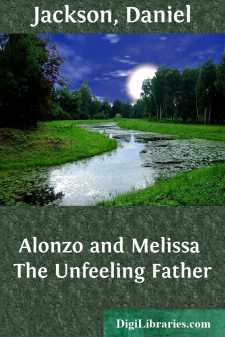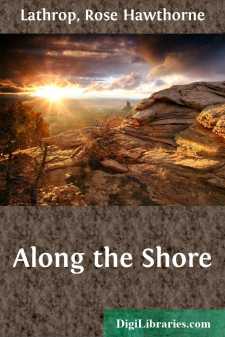Fiction
- Action & Adventure 180
- Biographical 14
- Christian 59
- Classics
- Coming of Age 5
- Contemporary Women 3
- Erotica 8
- Espionage/Intrigue 12
- Fairy Tales, Folklore & Mythology 236
- Family Life 169
- Fantasy 117
- Gay 1
- General 596
- Ghost 31
- Historical 808
- Horror 42
- Humorous 159
- Jewish 25
- Legal 4
- Medical 22
- Mystery & Detective 314
- Political 49
- Psychological 41
- Religious 64
- Romance 158
- Sagas 11
- Science Fiction 730
- Sea Stories 113
- Short Stories (single author) 537
- Sports 10
- Suspense 1
- Technological 8
- Thrillers 2
- Urban Life 31
- Visionary & Metaphysical 1
- War & Military 173
- Westerns 199
Classics Books
Sort by:
by:
Anonymous
The Author of the Memoirs had so little to apprehend in his Reputation either at home or abroad from the feeble Efforts of Monsieur de Cross in his late trifling Invective, that had it not been for the repeated Instances of some Friends, who were unwilling to have such a wretched Scribler escape unpunished, he had never condescended to the severe penance of sitting an hour upon him. To their...
more...
by:
Daniel Jackson
PREFACE Whether the story of Alonzo and Melissa will generally please, the writer knows not; if, however, he is not mistaken, it is not unfriendly to religion and to virtue.—One thing was aimed to be shown, that a firm reliance on Providence, however the affections might be at war with its dispensations, is the only source of consolation in the gloomy hours of affliction; and that generally such...
more...
The use of the term preparation herein is intended to indicate partially the limitation of the problem attempted. The following discussion will be concerned only with such attributes of the successful teacher as are the direct result, or at least greatly enhanced by thorough preparation. A sufficiently comprehensive and difficult problem remains after still further restriction of the field so as to...
more...
INLET AND SHORE. Here is a world of changing glow, Where moods roll swiftly far and wide; Waves sadder than a funeral's pride,Or bluer than the harebell's blow! The sunlight makes the black hulls cast A firefly radiance down the deep; The inlet gleams, the long clouds sweep,The sails flit up, the sails drop past. The far sea-line is hushed and still; The nearer sea has life and...
more...
by:
Hesba Stretton
CHAPTER I. NOT ALONE. It had been a close and sultry day—one of the hottest of the dog-days—even out in the open country, where the dusky green leaves had never stirred upon their stems since the sunrise, and where the birds had found themselves too languid for any songs beyond a faint chirp now and then. All day long the sun had shone down steadily upon the streets of London, with a fierce glare...
more...
by:
Mary Wood-Allen
PRELUDE. Mr. Wayne, glancing out of the window, saw some one passing down the front steps. Suddenly a look of recognition came into his face, and he turned to his wife with the exclamation, “I declare, Mary, our daughter Helen is almost a woman, isn’t she?” “Yes,” replied Mrs. Wayne, coming to his side and watching the slender figure going down the street. Her face bore a look of motherly...
more...
Chapter One. The Wolf, a letter-of-marque of twenty guns, commanded by Captain Deason, sailing from Liverpool, lay becalmed on the glass-like surface of the Pacific. The sun struck down with intense heat on the dock, compelling the crew to seek such shade as the bulwarks or sails afforded. Some were engaged in mending sails, twisting yarns, knotting, splicing, or in similar occupations; others sat in...
more...
by:
Rudyard Kipling
Hunting.Certes it is a noble sportAnd men have quitted selle and swum for't,But I am of a meeker sortAnd I prefer Surtees in comfort.Reach down my "Handley Cross" again.My run, where never danger lurks, isWith Jorrocks and his deathless trainPigg, Binjimin and Arterxerxes! January. Most men harry the world for fun—Each man seeks it a different wayBut "of all daft devils under the...
more...
by:
George MacDonald
CHAPTER I. SONG. I confess I was a little dismayed to find what a solemn turn the club-stories had taken. But this dismay lasted for a moment only; for I saw that Adela was deeply interested, again wearing the look that indicates abstracted thought and feeling. I said to myself: "This is very different mental fare from what you have been used to, Adela." But she seemed able to mark, learn, and...
more...
by:
George MacDonald
CHAPTER I. MY UNCLE PETER.—CONTINUED. "It was resolved that on the same evening, Chrissy should tell my uncle her story. We went out for a walk together; and though she was not afraid to go, the least thing startled her. A voice behind her would make her turn pale and look hurriedly round. Then she would smile again, even before the colour had had time to come back to her cheeks, and...
more...


![An Answer to a Scurrilous Pamplet [1693]](https://digilibraries-com.s3.eu-central-1.amazonaws.com/covers/a4d8de6b-47b3-45ff-a4c2-077097eb6cdc.jpg)








